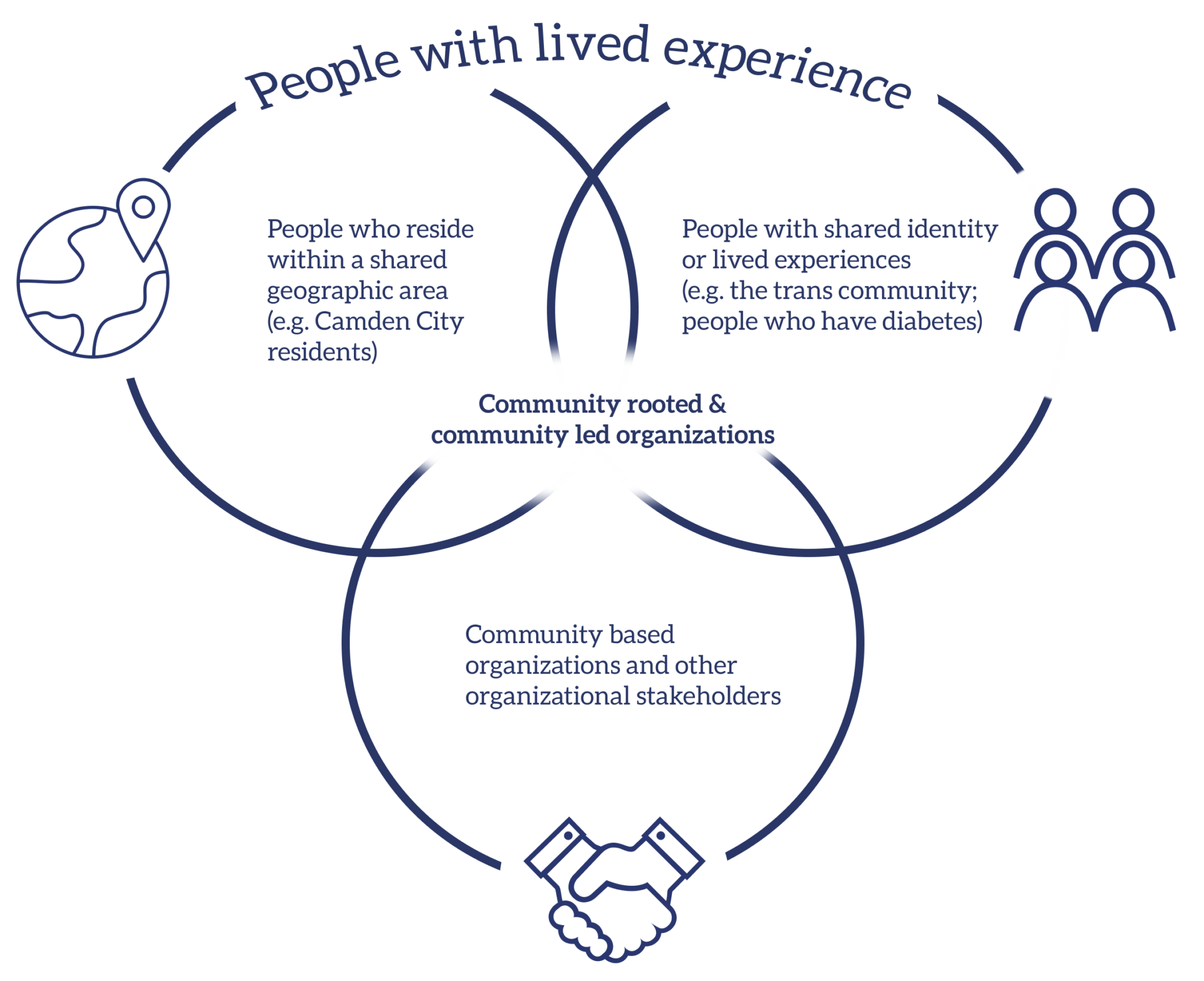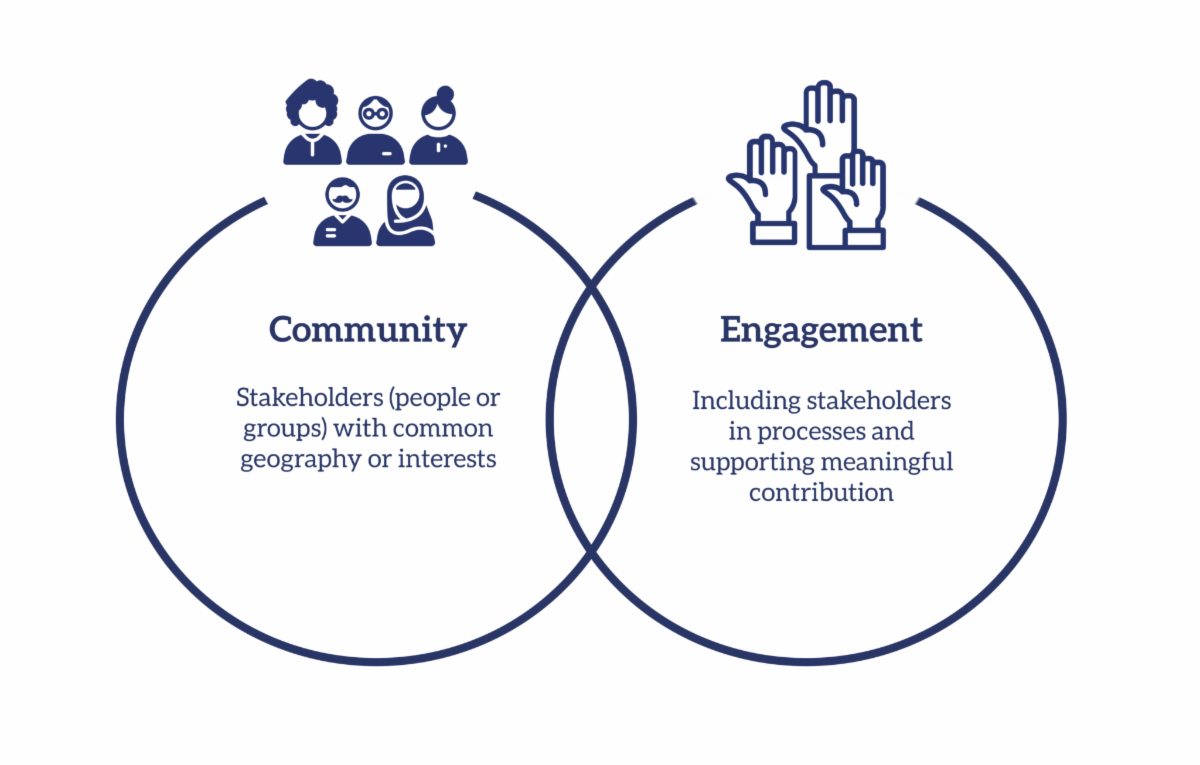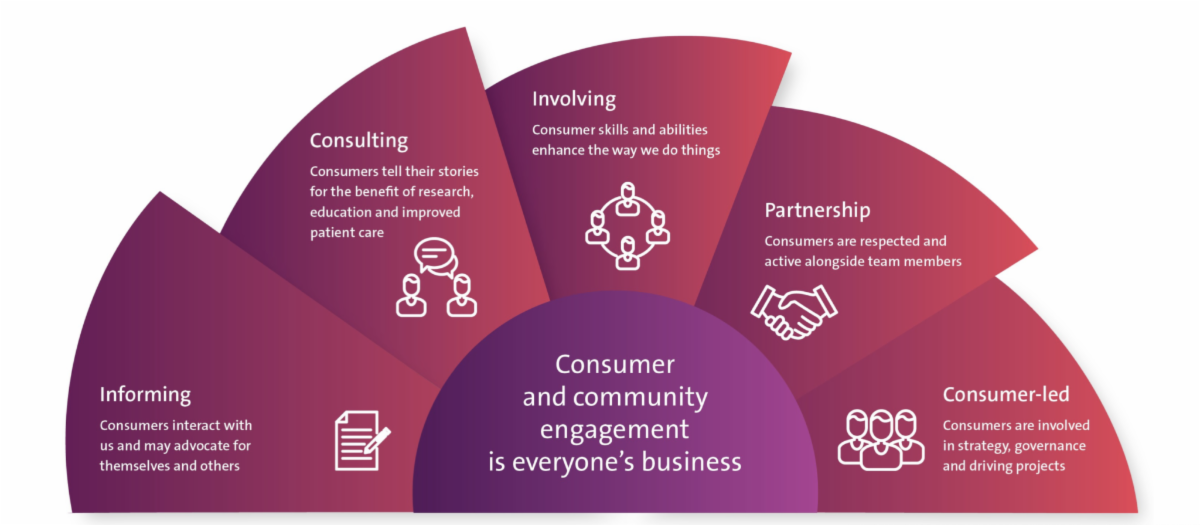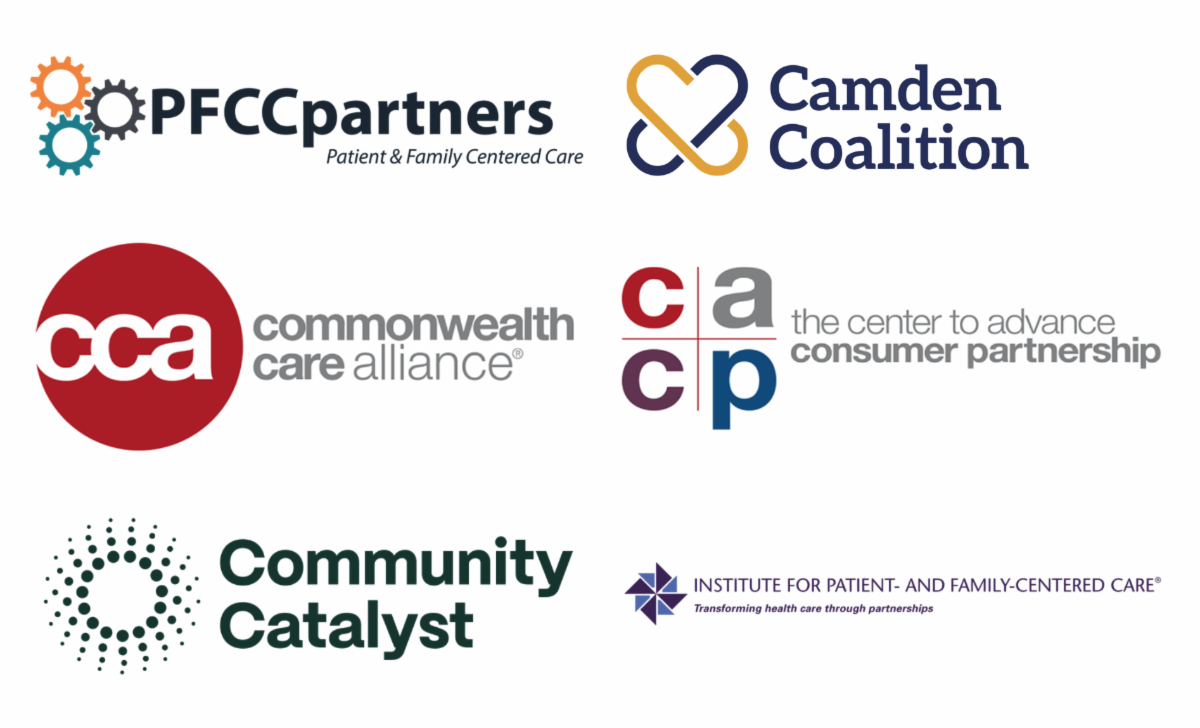Are we speaking the same language?
Shared language is an essential element of meaningful community engagement. This should come as no surprise. It can look like:
Having an interpreter and translated materials for people who speak languages other than English
Prioritizing digital accessibility
Avoiding “insider lingo” and jargon that can be a challenge for community members and organizational staff alike to understand
Coming to a shared understanding of what we mean by “value” in healthcare
Importantly, shared language is also about having a common understanding of what we even mean by “community” and “community engagement.”
INSPIRE (Initiating National Strategies for Partnership, Inclusion, and Real Engagement), has brought together a national team committed to advancing partnerships between healthcare organizations and people with lived experiences across the country. Creating shared language is an important first step toward ensuring that we can communicate with one another about our community engagement work, goals, and challenges — and can hold one another accountable to building authentic, mutually beneficial partnerships.
Who is "community?"
Community can refer to people who live in the same geographic area and/or people who have characteristics or experiences in common. INSPIRE refers to individuals within a community as “community members” or “people with lived experience.” Community can also refer to organizations that serve people within a shared geographic area and/or that have a common service focus. Some organizations are representative of and/or led by community members themselves, and some are not.
Some notes about defining “community:”
The way people identify their own community affiliations may be different than the way healthcare organizations identify community affiliations. For instance, healthcare organizations may think of people as “Medicaid recipients”, while they may think of themselves as a member of a specific health plan/managed care organization — or not define themselves based on their health insurance status at all.
Some people say “but we all have lived experience.” While this is true, factors such as race, class, geography, and identity drive significant differences in how individuals and communities can or cannot access high-quality and person-centered healthcare. INSPIRE is focused primarily on ensuring that people and communities who are impacted by structural racism, injustices, and health disparities have opportunities to engage and partner with the systems and organizations endeavoring to serve them.
What is “community engagement?”
Source: simplystakeholders.com
Community engagement refers to the different ways in which healthcare organizations can reach out to, engage, and partner with people with lived experience, with the goal of working together to improve healthcare and achieve positive health outcomes.
Like the definitions of community engagement from WHO and CDC, ours highlights concepts of relationships, collaboration, and outcomes. We also prioritize creating a plain language definition that is accessible across invested parties.
Community engagement can be focused on working with people with lived experience and/or with other organizations in the community. An early observation of our team is that healthcare organizations are most often thinking about and undertaking community engagement with organizations. INSPIRE, however, is focused on improving direct engagement/partnerships with people with lived experience.
What can community engagement look like?
Source: vcccalliance.org.au
Community engagement models provide a framework for considering the degree to which community members and people with lived experiences are engaged and centered in the process. The above diagram, created by the VCCCC Alliance, shows a spectrum of community engagement approaches, from informing to consulting to involving to partnership to consumer-led. Several other variations of community engagement spectrums exist with slightly different ways of categorizing or defining engagement approaches.
A core tenet of INSPIRE’s work is that people with lived experience must have opportunities to partner with organizations in ways that go beyond informing and consulting. To achieve healthcare’s goals of improved outcomes in cost, quality, and access, and to advance health equity, community involvement, partnership, and leadership are necessary.
Healthcare organizations should thus prioritize robust opportunities for partnership by ensuring that people with lived experience are centered-in and leaders of the work. Offering multiple engagement opportunities across the spectrum ensures that all people with lived experience have the opportunity to participate in ways that meet their interests, abilities, and needs.
A step toward shared language
INSPIRE is working to harness the growing interest in community engagement in healthcare while also addressing the need for real-world support and guidance on how to actually do the work in authentic and impactful ways. Developing a shared language and common understanding of how we define and understand community engagement is an important first step.
While healthcare continues to make advances in organizational level community partnerships, more attention is needed to building partnerships with organizations that are truly representative of the communities they serve – and building partnerships with people with lived experiences themselves.
In the coming months, INSPIRE will be undertaking a research and strategic planning phase to summarize the current state of community engagement work in healthcare, identify the desired future state based on best practices and key opportunity areas, and, most importantly, create a roadmap for how the field can close this gap. We hope to connect with many healthcare stakeholders and people with lived experience in the process and welcome you to reach out to us.
Please contact Taylor Brown at tbrown@camdenhealth.org with questions about the project or interest in getting involved.




